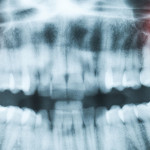10 Biggest Causes of Tooth Sensitivity
Are your teeth tender? From acidic foods to certain toothpastes, a number of culprits could be to blame.
Does eating frozen yogurt make you say “ouch” — or do you find yourself wincing when you brush or floss? You could have what’s known as tooth sensitivity.
But you don’t have to put up with the pain. In fact, there are things you can do to lessen tooth sensitivity and improve your oral health says Leslie Seldin, DDS, a dentist in New York City and a spokesman for the American Dental Association.
Here’s why you could be experiencing this mouth malady — and what steps you should take to ease the ouch:
- You brush with too much gusto. Sometimes tooth sensitivity comes from brushing with too much force or with too hard-bristled a toothbrush. Over time, you can wear down the protective layers of your teeth and expose the microscopic hollow tubes or canals that lead to your dental nerves. When these tubules are exposed to hot or cold or to acidic or sticky foods, tooth sensitivity and discomfort can be the result. The simplest solution is to switch to a toothbrush with softer bristles and to be gentler when brushing.
- You eat acidic foods. If the pathways to your nerves are exposed, acidic foods such as tomato sauce, lemon, grapefruit, kiwi, and pickles can cause pain. Use common sense: Stick to foods that won’t cause you pain.
- You’re a tooth-grinder. Grinding your teeth can wear down the enamel, even though it’s the strongest substance in your body. By doing so, you expose the dentin, the middle layer of the tooth, which contains the hollow tubes that lead to your nerves. Talk to your dentist about finding a mouth guard that can stop you from grinding. The best guards are custom made to fit your bite, Dr. Seldin says.
- You choose tooth-whitening toothpaste. Many manufacturers add tooth-whitening chemicals to their toothpaste formulas, and some people are more sensitive to them than others. If your toothpaste could be to blame for tooth sensitivity, consider switching toothpastes.
- You’re a mouthwash junkie. Like whitening toothpaste, some over-the-counter mouthwashes and rinses contain alcohol and other chemicals that can make your teeth more sensitive — especially if your dentin’s exposed. Solution: Try neutral fluoride rinses — or simply skip the rinse and be more diligent about flossing and brushing.
- You’ve got gum disease. Receding gums, which are increasingly common with age (especially if you haven’t kept up with your dental health), can cause tooth sensitivity. If gum disease or gingivitis is the problem, your dentist may suggest a procedure to seal your teeth along with treating the gum disease itself.
- You have excessive plaque. The purpose of flossing and brushing is to remove plaque that forms after you eat. An excessive build-up of plaque can cause your enamel to wear away. Again, your teeth can become more sensitive as they lose their enamel protection. The solution is to practice good daily dental care and visit your dentist for cleanings every six months — or more frequently if necessary.
- You’ve had a dental procedure. Teeth often become more sensitive after you’ve been in the dentist’s chair. It’s common to have some sensitivity after a root canal, an extraction, or the placement of a crown. If your sensitivity doesn’t disappear after a short time, another visit to your dentist is in order — it could be an infection.
- Your tooth is cracked. A chipped or cracked tooth can cause pain that goes beyond tooth sensitivity. Your dentist will need to evaluate your tooth and decide the right course of treatment, such as a cap or an extraction.
- There is decay around the edges of fillings. As you get older, fillings can weaken and fracture or leak around the edges. It’s easy for bacteria to accumulate in these tiny crevices, which causes acid build-up and enamel breakdown. See your dentist if you notice this type of tooth sensitivity between visits; in most cases, fillings can be easily replaced.
Tooth sensitivity is treatable. In fact, you might find that using toothpaste specifically made for sensitive teeth helps, Seldin says. However, these formulas don’t work for everyone. “I have a lot of patients with sensitivity that could not be resolved by toothpaste,” he says.
If your sensitivity is extreme and persists no matter what you do, see your dentist for an evaluation. Among other possible treatments, he or she may be able to apply a fluoride gel to areas of the teeth where you have the most sensitivity, to strengthen your tooth enamel and reduce the sensations you feel. And, of course, only an office visit can determine the most likely cause of your tooth sensitivity and the best solution for your particular situation.
Looking for an orthodontist in Beaverton, Oregon? Biermann Orthodontics is a cutting-edge orthodontic practice that serves Beaverton and Molalla, OR, and focuses on providing world-class customer service and efficient treatment. We strive to create stunning smiles in the shortest amount of time without ever sacrificing quality.
Visit our Locations page to find a clinic near you, or schedule an initial consultation.
Biermann Orthodontics
503-690-0722
17885 NW Evergreen Parkway, Suite 200
Beaverton, OR 97006



